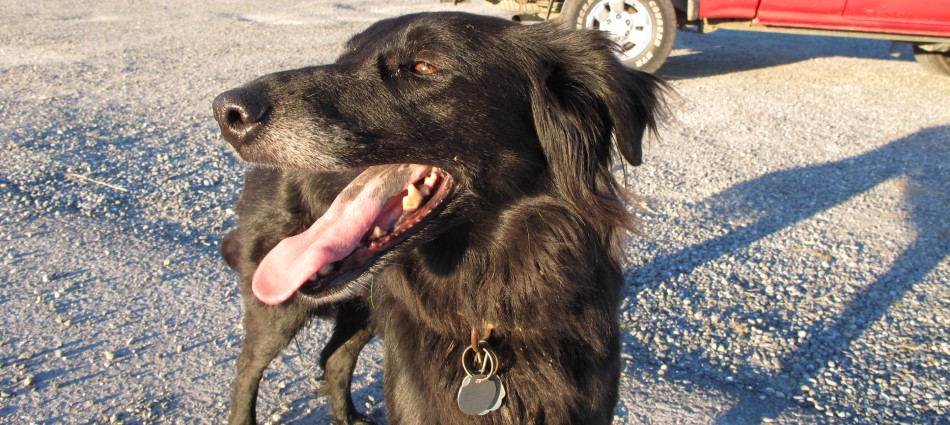Pick-up Dogs How Two Rescue Dogs Save the West from Being Won

Do Dogs Get PTSD?
I was in the car listening to the radio a few weeks ago and heard an NPR story about Army Staff Sergeant Ty Michael Carter winning the nation’s highest military honor, a Medal of Honor at a White House ceremony. As always, NPR Morning Edition’s host, Renee Montagne, was sensitive, informed and understood the bittersweet moment for Carter, and the interview took a few tender turns that really pulled at my gut strings.
Carter was given the award for his actions during a 2009 firefight in Afghanistan. In a vulnerable location, a remote valley surrounded by steep cliffs, Carter’s Black Knight Troop was caught in a particularly awful ambush. The Army says that amidst the chaos surrounding him Carter bravely killed enemy troops, resupplied ammunition to American fighters, rendered first aid to his fallen soldier brothers, and risked his own life to save an injured soldier who was pinned down by a barrage of enemy fire. In humble fashion, Carter said he was just doing everything he could to save lives and prevent further loss, even as he watched his fellow soldiers, his brothers, dying all around him. 8 of his troop were killed and 25 injured.
It’s worth listening to the entire interview to get a sense of the drama surrounding the situation, but what caught my ears and jerked out my tears came later in the interview when Carter was describing his PTSD. What’s unfortunate about the label of the term PTSD (post-traumatic stress disorder) is the last letter of the acronym—D for disorder—when really what your body’s reaction is to extreme violence isn’t a disorder but a natural body response. Because it’s labeled a “disorder,” there’s a stigma attached to it and indirectly suggests that a soldier’s reaction is not normal.
Carter makes the keen analogy to a baseball player who has been hit by a pitch in the head. Like a batter hit by a pitch, the next time he’s up, he’s wary. He gets minor flashbacks of what happened before to remind him to prepare to duck. He twitches and convulses. For some batters, this twitching behavior might last a few games, a season. For others, injured in a particularly bad way, they might not ever face a pitch with the same boy-like enthusiasm as they did before being hit, because they anticipate the pain that might come again when struck on the head by a fastball.
In other words, when a soldier has experienced the incredibly tense situation of being surrounded by extreme violence, by watching his fellow soldiers die around him, when he confronts a situation that might only be vaguely similar on the surface—loud firecrackers or maybe just the emotionally buoyant sound of silence or maybe the thought of his family members—he re-experiences that tremendous pain and intensity of that horrible situation. He has a flashback.
To give an example, Carter describes a moment when he was walking through an airport, and he saw a picture that advertised travel, and there was a mother and a father and a little girl at the Grand Canyon. He instantly felt a large amount of sorrow because he was transported back to the night after the firefight, where he imagined his daughter growing up without a daddy. “So all within a fraction of a second, you’re slammed with all these emotions and memories. It takes a lot of effort to choke back the tears, and try to act normal.”
In a totally tangential way, Carter’s story instantly made me think of my people-wary border collie/flat-coated retriever mix Lupe, who I rescued from a pound after being found on a rural highway in Kansas when she was about a year old. When introduced to new people, Lupe convulses, twitches and goes through some sort of flashback of when an untrustworthy person must have harmed her in that time before we met. I can only conjecture of what happened to her, but you can clearly see fear in her eyes and a survival mechanism that kicks in that makes her want to nip at the newcomer and protect those around her, too.
Lu’s energy focuses on what the new person is doing. She tries to focus her energy on controlling herself but part of her focusing on trying to be good puts her brain on overload. Yet every time she meets someone new, you can see her little brain reliving a terrible moment. In a way, it must be some sort of PTSD.
The way to solve these problems, so they say, is to get at a point where the sufferer of the PTSD can remember the horrible moment—you can’t ever run away from it—without reliving the moment. Those that suffer from PTSD relive their intense experience in such a way that their body’s natural response to basic daily activities can be damaging: their adrenaline goes up, they can’t control basic actions or emotions. They might lose it if nobody is there to help them walk through it.
It hurts to see Lu go through her reactions to people in that way. She is so tight with those she loves. She’s like a little sidekick and lives to be with those she loves in her own wary and independent way. My only hope is that we see some of these behaviors in our dogs, in our soldiers, and even those of us who have just experienced something really intense, and realize that some of our natural responses are not disorders but common ways we use to just survive what can be a very intense life on this planet.